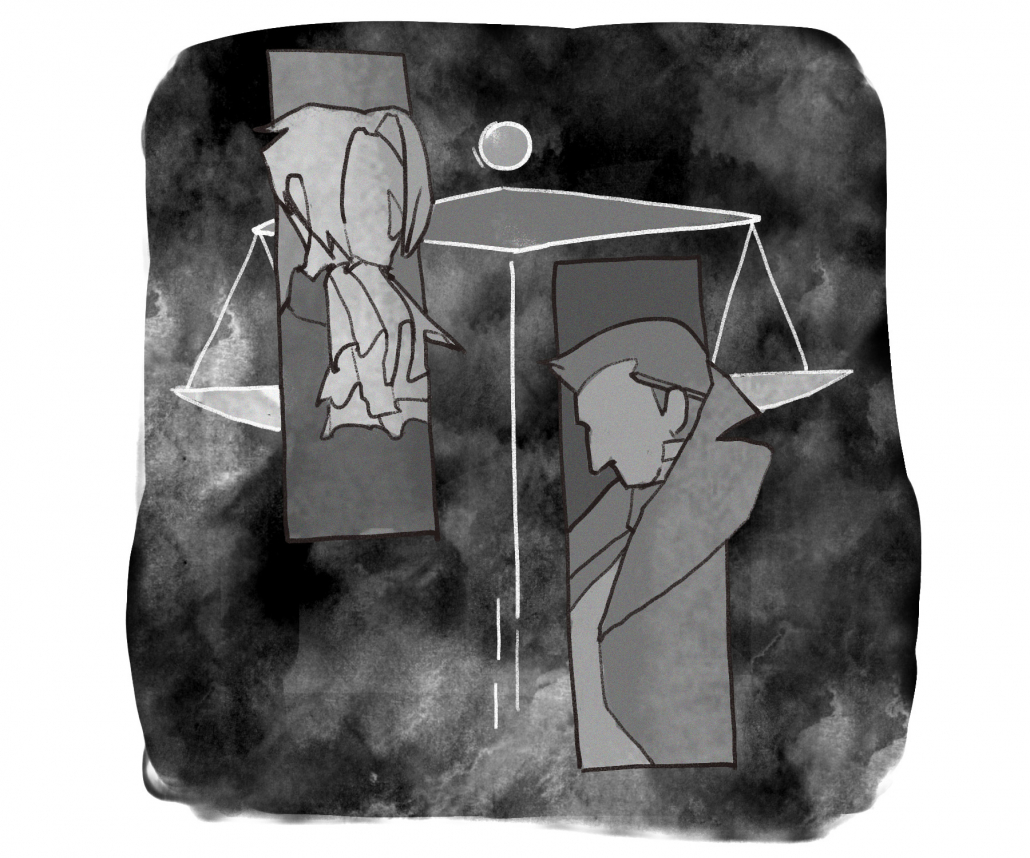Stardust: Miles Edgeworth’s take on morally ambiguous shortcuts

For those who don’t know, “Ace Attorney” is a series of games that involve players playing as lawyers proving the innocence of a variety of characters accused of committing crimes. The first games were written and directed by Shu Takumi until it passed to Takeshi Yamazaki. The series launched in Japan but has also become popular in the United States. However, some games were never localized, leading to the topic of “Gyakuten Kenji 2,” also known as “Ace Attorney Investigations 2.”
Unlike its predecessor “Ace Attorney Investigations,” “Ace Attorney Investigations 2” was never released in the United States. Yet, after the sequel was translated, some fans of Ace Attorney consider AAI2 far better. Walkthroughs of the game can be found online as a result of this popularity, allowing for others to understand the story revolving around the main character of this game –– Miles Edgeworth.
For some background, Miles Edgeworth is a prosecutor and rival of the main protagonist of the original “Ace Attorney” games. The morally gray setting within the game challenges Edgeworth but through his his steady development, he works to not rush to results. He joins his friends on multiple cases involving crimes committed by unknown people to convey the main theme of not focusing entirely on the results, but instead making long-lasting changes through continuous effort. The game does a good job of emphasizing this through the characters.
Katherine Hall, a new character in the game and “Ace Attorney” series, exemplifies the consequences of taking shortcuts, regardless of having good intentions. Being a caring housekeeper who is greatly devoted to her boss and guardian, Jeffrey Master, who was accused and incarcerated for murder, Hall was willing to do anything to prove his innocence. Hall went through with this, despite almost taking someone’s life and facing Miles Edgeworth. Hall’s humanity helps us see how even kind people can make morally gray decisions. Should something have gone differently, the true culprit could have been killed, thus destroying a chance at proving Master’s innocence.
Despite Hall’s actions leading to trapping the true culprit, the plan to save Master would not have succeeded if it were not for both Miles and his father, Gregory Edgeworth.
This is not Gregory’s first mention in an Ace Attorney game, and it is great how Takumi takes advantage of past characters to exemplify, despite this case being in the minds of people such as Katherine Hall for years and despite Gregory’s death, the information he obtained would ultimately help Edgeworth solve this case.
Thus, the moral one can get from this is not just focusing solely on the results, but also appreciating continuous effort due to Gregory and Edgeworth eventually aiding in the true culprit’s arrest. Another character, Sebastian Debeste, would later appreciate this effort.
Sebastian Debeste is important because of his similarities to Miles Edgeworth — both characters focus more on the results, rather than putting in effort to find the truth.
Debeste’s testimonies on who the culprits are in his cases lack various details, demonstrating how he rushes into indicting before processing all the facts. Sebastian is not some evil villain, as his problems are shown to be more relatable when we learn about the harsh treatment he received from his father.
Debeste’s father is shown not to believe in his son, leading to Edgeworth being the one advising Sebastian. At first, Debeste took shortcuts for his father’s approval, but thanks to Edgeworth, he learns to rely on himself, allowing himself to grow in his thinking.
This is emphasized when Debeste must face his own father, working side-by-side with Edgeworth, appreciating his way of finding the truth about Debeste’s father and his crimes, some of which would ultimately lead to the creation of a vengeful mastermind.
The overall theme is expressed in the final case of the game where Edgeworth, thanks to his continuous effort, must face-off against the “Mastermind,” who sought revenge when driven into a corner. The “Mastermind” couldn’t trust the justice system and took the shortcut of instigating murder. He states:
“After all, that’s how the police pull the wool over the eyes of those without power! And that’s why my revenge was necessary!”
However, these acts ultimately cause the “Mastermind” trouble when he attracts the attention of an assassin who wants him dead.
Soon after, the ways of the“ Mastermind” are almost accepted by a character who wants revenge as well. However, the theme of appreciating continuous effort over rushing through the results is shown again when revenge is avoided as a result of appreciating the efforts of Miles Edgeworth and those who work with him. Edgeworth is further encouraged to continue as a prosecutor, wanting to steadily stop corruption within each courtroom he takes a part in.
In essence, “Ace Attorney Investigations 2” does a good job with implementing various characters that tried taking morally ambiguous shortcuts that fell short when losing sight of the importance of continuous effort. This was mainly due to the characters driven by emotions of sadness, anger and disappointment — feelings that are presented in different kinds of people. Thus, the themes aren’t constrained to generic villain characters and can be more relatable to the audience.

